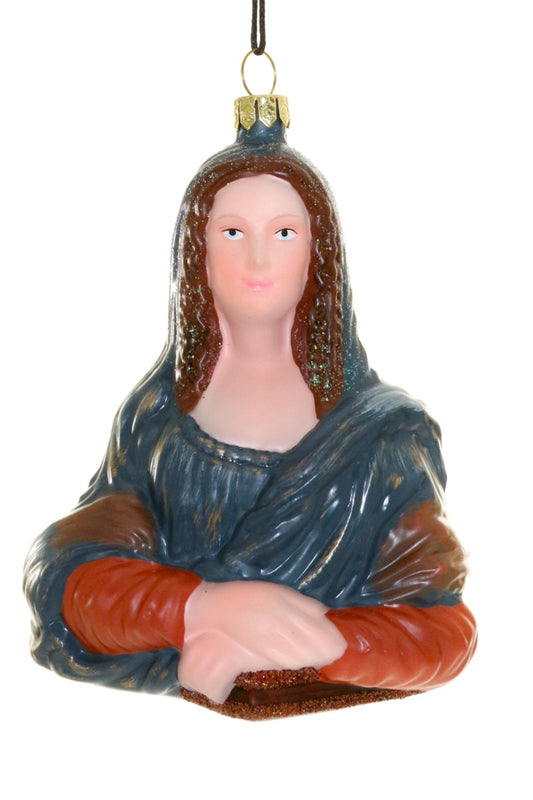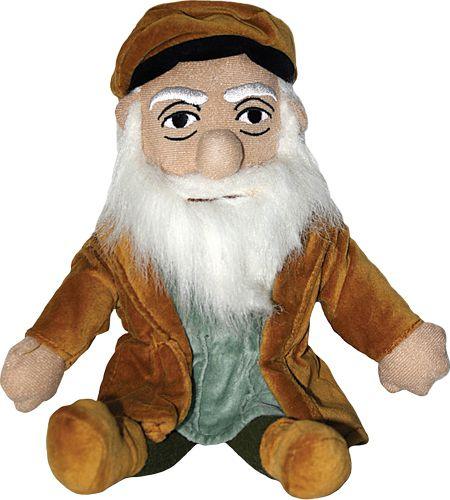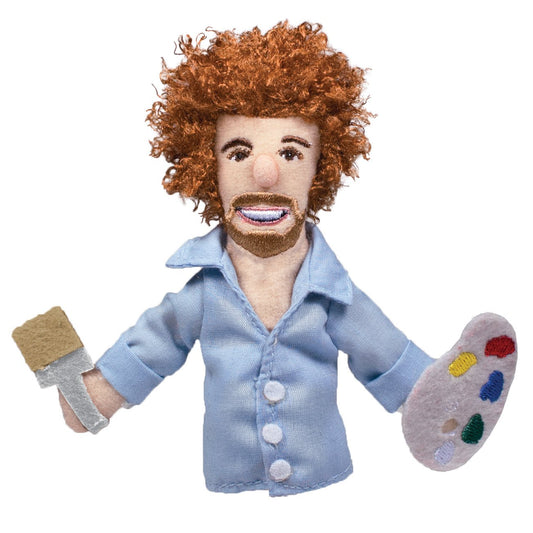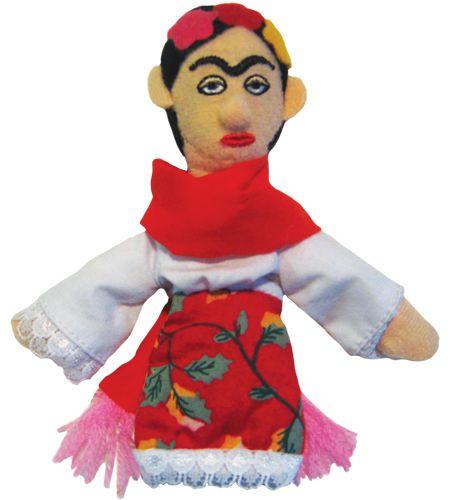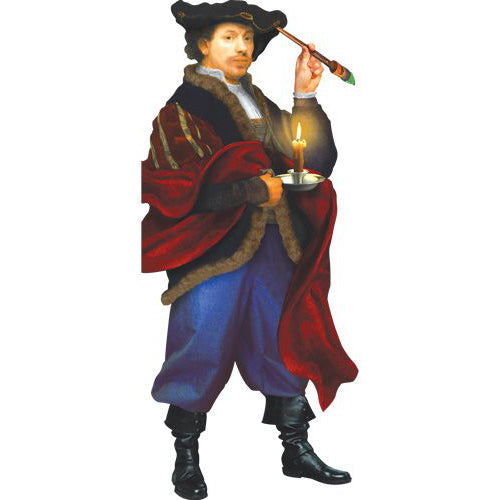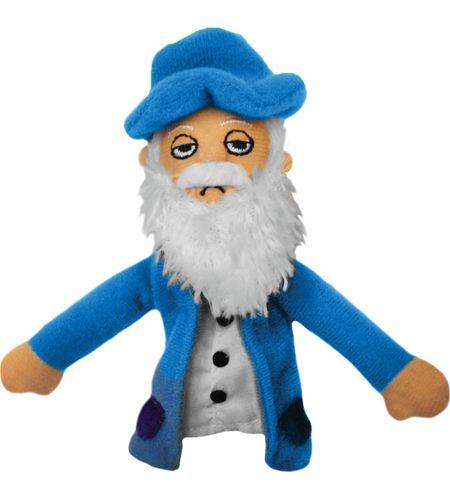Tarjeta de notas troquelada Leonardo da Vinci con pegatinas
Tarjeta de notas troquelada Leonardo da Vinci con pegatinas
The Unemployed Philosopher's Guild
Agotado
No se pudo cargar la disponibilidad de retiro
Ahora puedes enviar a Leonardo da Vinci para que entregue tus observaciones científicas y esquemas ridículos con esta hermosa tarjeta Quotable Notable. En el reverso de la tarjeta hay una mini biografía del último Hombre del Renacimiento, y en caso de que seas un procrastinador crónico como da Vinci, también hay una hoja de calcomanías con citas e imágenes, con saludos amistosos como "¡Feliz cumpleaños!" ¡y buena suerte!"
- Incluye sobre y hoja de pegatinas.
Product Details
Product Details
- Product type: Blank Note Card
- Shipping Dimensions: 8.75 × 4.0 (22.2 × 10.2 cm)
- Shipping Weight: 0.13 lb (2.0 oz; 57 g)
- SKU: SKU: SKU010003177
- UPC: 814229005582
Share



About the
Leonardo da Vinci
Leonardo da Vinci (1452 — 1519) was an Italian painter, draftsman, sculptor, architect, and engineer whose skill and intelligence, perhaps more than that of any other figure, epitomized the Renaissance humanist ideal. His Last Supper (1495–98) and Mona Lisa (c. 1503–19) are among the most widely popular and influential paintings of the Renaissance. His notebooks reveal a spirit of scientific inquiry and a mechanical inventiveness that were centuries ahead of their time.
More Leonardo da Vinci
-
Quilled Bookmark: DaVinci's Mona Lisa
Precio habitual $6.95 USDPrecio habitualPrecio unitario / por -
Adorno de vidrio: Busto de Mona Lisa
Precio habitual $14.95 USDPrecio habitualPrecio unitario / por -
Lenticular Postcard: The Last Supper
Precio habitual $3.25 USDPrecio habitualPrecio unitario / por -
Lenticular Postcard: da Vinci (Mona Lisa)
Precio habitual $3.25 USDPrecio habitualPrecio unitario / por -
Sugar-Free Mints Tin: Mona Lisa
Precio habitual $4.95 USDPrecio habitualPrecio unitario / por -
Vamos, Mona... ¡Sonríe!: Un libro animado
Precio habitual $5.99 USDPrecio habitualPrecio unitario / por -
Lenticular Postcard: da Vinci (Lady with an Ermine)
Precio habitual $3.25 USDPrecio habitualPrecio unitario / por -
Art Perplexity Game: Mona Lisa
Precio habitual $3.99 USDPrecio habitualPrecio unitario / por -
Leonardo da Vinci "Little Thinker" Plush Doll
Precio habitual $24.00 USDPrecio habitualPrecio unitario / por -
Duck'oration: Mona Lisa
Precio habitual $12.99 USDPrecio habitualPrecio unitario / por

About the Brand
The Unemployed Philosopher's Guild
The origins of the Unemployed Philosophers Guild are shrouded in mystery. Some accounts trace the Guild's birth to Athens in the latter half of the 4th century BCE. Allegedly, several lesser philosophers grew weary of the endless Socratic dialogue endemic in their trade and turned to crafting household implements and playthings. (Hence the assertions that Socrates quaffed his hemlock poison from a Guild-designed chalice, though vigorous debate surrounds the question of whether it was a "disappearing" chalice.)
Others argue that the UPG dates from the High Middle Ages, when the Philosophers Guild entered the world of commerce by selling bawdy pamphlets to pilgrims facing long lines for the restroom. Business boomed until 1211 when Pope Innocent III condemned the publications. Not surprisingly, this led to increased sales, even as half our membership was burned at the stake.
More recently, revisionist historians have pinpointed the birth of the Guild to the time it was still cool to live in New York City's Lower East Side. Two brothers turned their inner creativity and love of paying rent towards fulfilling the people's needs for finger puppets, warm slippers, coffee cups, and cracking up at stuff.
Most of the proceeds go to unemployed philosophers (and their associates). A portion also goes to some groups working on profound causes.
-
Museum Store Association Member
The Museum Store Association supports the cultural non-profit retail industry and the people who work in it.
-
Supports Non-profit Organizations
A portion of proceeds is donated to non-profit organizations. See description for details.
-
Designed in USA
Designed in the USA, with global manufacturing or assembly.
More from The Unemployed Philosopher's Guild
-
Marioneta de dedo magnética de Bob Ross
Precio habitual $8.95 USDPrecio habitualPrecio unitario / por -
Marioneta de dedo magnética Frida Kahlo
Precio habitual $8.95 USDPrecio habitualPrecio unitario / por -
Copa de Arte Moderno
Precio habitual $19.95 USDPrecio habitualPrecio unitario / por -
Frida Dreams Mug
Precio habitual $19.95 USDPrecio habitualPrecio unitario / por -
Diego Rivera Magnetic Finger Puppet
Precio habitual $8.95 USDPrecio habitualPrecio unitario / por -
James Baldwin "Little Thinker" Plush Doll
Precio habitual $24.00 USDPrecio habitualPrecio unitario / por -
Tarjeta de notas troquelada de Rembrandt con pegatinas
Precio habitual $3.95 USDPrecio habitualPrecio unitario / por -
Marioneta de dedo magnética de Claude Monet
Precio habitual $8.95 USDPrecio habitualPrecio unitario / por -
Marioneta de dedo magnética de James Baldwin
Precio habitual $8.95 USDPrecio habitualPrecio unitario / por -
Marioneta de dedo magnética de Vincent van Gogh
Precio habitual $8.95 USDPrecio habitualPrecio unitario / por




